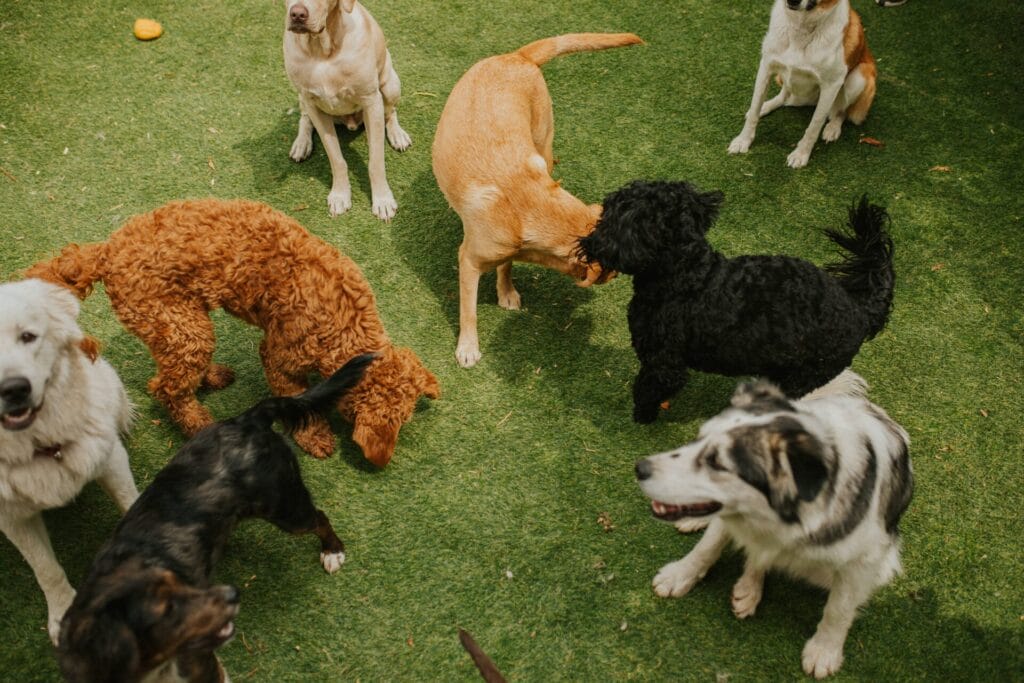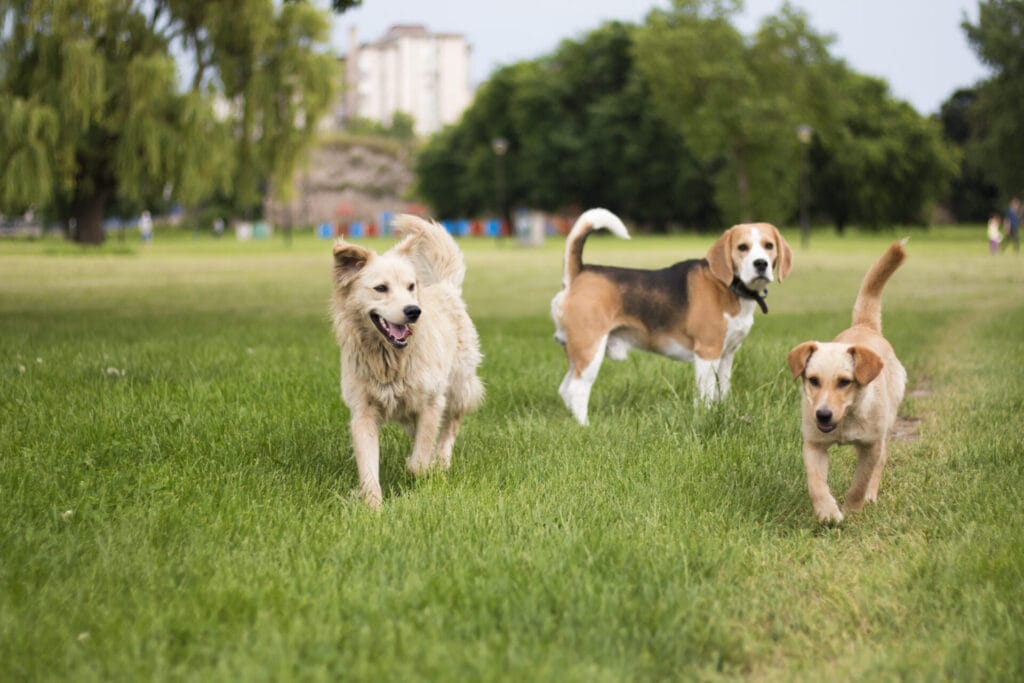Most social dogs appreciate opportunities to play with other dogs. One of the best and safest ways to give your dog the chance to have fun with other dogs is to schedule dog playdates. The benefits of dog playdates are numerous. A dog playdate is exactly what it sounds like: a chance for dogs with compatible temperaments to play together. For some dogs, a playdate means off-leash play in a fenced yard or other safely enclosed area. For others, an ideal playdate might involve taking walks with another dog and their owner. The benefits of dog playdates include supervised playtimes that allow dogs to spend quality time with their canine friends. Activities like training together, hiking, or off-leash play should be tailored to the dogs’ individual personalities and what is fun and safe for them.
Benefits of Dog Playdates
Scheduled playdates are an ideal way to let your dog interact with other dogs. These playdates involve planned time for play between dogs known to be happy and social. Playdates with dogs of similar sizes and energy levels are fun and fulfilling, allowing them to enjoy each other’s company. Just like we enjoy meeting up with good friends, many dogs feel the same way about time with their doggy besties. Most importantly, dog playdates help meet dogs’ social needs, reducing stress and negative behaviors stemming from boredom or lack of enrichment.
The Problem with Dog Parks
While dog parks might seem like a good option for playdates, a planned and structured playdate is usually a better fit. Dog parks often present problems because they consist of unknown dogs who haven’t been properly introduced or assessed for compatible play styles. Additionally, dogs at dog parks aren’t guaranteed to be healthy or up to date on vaccinations, making it easy for diseases to spread. The unstructured encounters of dogs of different sizes and temperaments can also lead to an increased risk of fights and injuries. Instead of bringing your dog to a dog park, consider planning playdates with known dogs to provide safer, more enjoyable play experiences.

Thinking About Playstyles
When planning a playdate, select dogs with similar play styles and temperaments to your dog. For example, some dogs enjoy wrestling, others prefer chasing and being chased, and some thrive with quieter, less direct interactions. Knowing your dog’s preferred play style helps you find ideal playmates. Also, consider the size of the dogs. For safety, it’s best to let your dog play with similarly sized dogs to avoid accidental injury. Discuss with the other dog owners beforehand about the activities and how to intervene if any dog becomes upset or overwhelmed.
Finding Playmates
If you have a puppy attending a kindergarten class, playtime during class can reveal your dog’s play style and introduce you to other puppies of similar age. Exchange contact information with other puppy parents to arrange outside-of-class playtime. Your dog trainer may also know suitable playmates for your dog, or you can connect with friends who have playful and social dogs.
Supervision
During playdates, it’s crucial to always supervise the dogs. Supervision ensures that all dogs are having a good time and feeling comfortable. Encourage appropriate play by ensuring both dogs are having fun and not displaying stressed body language. Play should be reciprocal, not one dog chasing or ganging up on the other. Supervision allows you to give breaks, fostering a healthy play dynamic and preventing overstimulation. If any dog shows signs of frustration, stress, or worry, separate them and give them a break.
Location Matters
When planning a playdate, select the right location. A fully fenced backyard is ideal, and an open area in your house can work depending on your dog’s size. Many dog training facilities also offer times to rent out their space for playdates. Ensure the play area is open and free of breakable items. Remove high-value items like food, treats, and toys to prevent conflicts over these resources.
By considering these factors, you can create safe, enjoyable, and enriching playdates for your dog, helping them stay happy, healthy, and well-socialized.




















